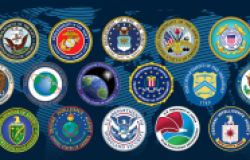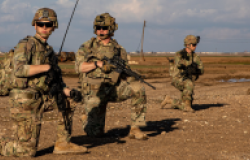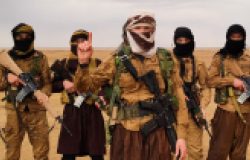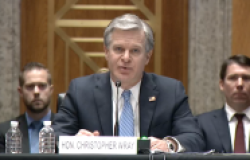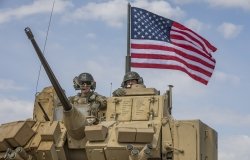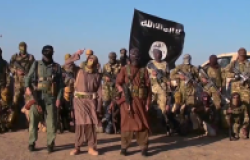What’s Behind Turkey’s U-Turn on the Islamic State?
After years of disagreement, the U.S. and Turkey are preparing to fight together in Syria. Henri Barkey explains Ankara's change of heart.
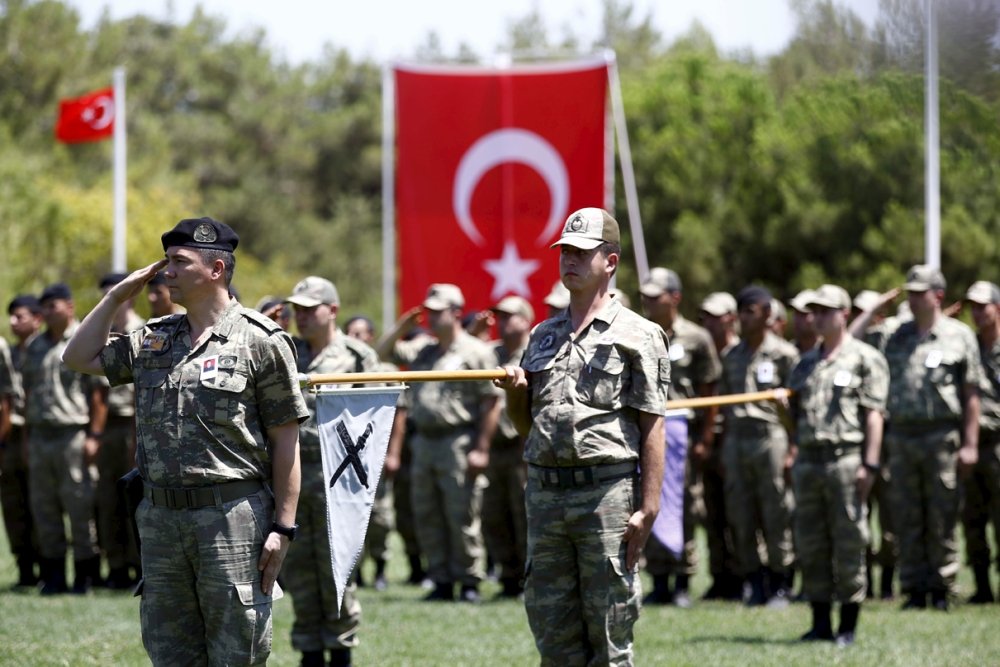
After years of disagreement, the United States and Turkey are preparing to fight together in Syria. In a major turnabout last week, the Turkish government announced that it would open its southern air bases to the U.S. Air Force in the war against the Islamic State (IS). The Turkish Air Force has also begun attacking IS targets, launching an attack on Friday that struck three of the group’s positions inside Syria. Washington and Ankara aim to eliminate the Islamic State from a 60 mile strip of land it still holds along the border with Turkey, and Turkish officials told the New York Times that they envision a “safe zone” for displaced Syrians in that territory.
This represents a stark turnabout for Ankara, which has long been a very reluctant partner, if not openly hostile, to the Obama administration’s policies in Syria. Turks and Americans differed strongly over what was the main threat: For Washington, it is the Islamic State, whereas for Ankara it is President Bashar al-Assad’s regime in Damascus.
Although the impetus for the change appeared to be the devastating July 20 suicide attack in the southern town of Suruc, which killed at least 32 people, mostly young activists, the fact of the matter is that Turkish authorities appear to have reluctantly come to the conclusion that they had no choice but join the coalition even before the bombing. Turkish authorities launched coordinated raids arresting Islamist radicals and shut down some of their social media sites in early July, before the bombing. The decision to formally agree to join the coalition was probably finalized during a visit to Ankara by Under Secretary of Defense Christine Wormuth and the U.S. special envoy for the anti-IS coalition, Gen. John Allen, in early July.
There are three broad reasons for Ankara’s change of heart. The first is Turkey’s deteriorating relations with the United States. Second, Ankara was alarmed by increasing U.S. cooperation with Syrian Kurds, which was growing deeper with every day that Turkey refused to cooperate with Washington. And finally, the Turks realized that IS had become a formidable entity potentially representing a threat to them as well.
Prior to this decision, U.S.-Turkish relations had reached a rare low. President Barack Obama, among other officials in Washington, was publicly complaining of Turkey’s lack of resolve in the fight against IS, and were especially critical of Turkey’s open-door policy that allowed jihadists from all over the world to transit Turkey with ease on the way to Syria. By refusing the anti-IS coalition access to the mammoth Incirlik Air Base in southern Turkey, only some 60 miles from the Syrian border, the U.S. Air Force had to fly in from bases in the Persian Gulf or from carriers in the Mediterranean, making it difficult to respond quickly against a nimble and unconventional adversary.
Turkish President Recep Tayyip Erdogan and elements of the Turkish press closely aligned with him, meanwhile, have long heaped scorn on Obama’s policies in Syria.
When in October 2014 the United States decided to come to the aid of Syrian Kurds besieged by IS in the town of Kobani, Erdogan thundered, “What’s in Kobani, oil? Gold? Diamonds?” — as if lucre was the only motivator of U.S. foreign policy.
In fact, it is this U.S. decision to support Syrian Kurds — and subsequently to openly partner with them in the fight against IS — that really caused the Turks to rethink their policy of non-cooperation with United States. In fact, the Syrian Kurds have been the sole military force that, with significant U.S air support, could inflict serious blows against IS. The Turks, however, see this growing partnership through the prism of their own three decade-long struggle against Kurdish insurgents.
The Democratic Union Party (PYD) leads Syrian Kurds, who represent some 10-12 percent of the population and whose ancestral lands lay near the Turkish border. The PYD is an offshoot of the Turkish-Kurdish insurgent group, the Kurdistan Workers’ Party (PKK). The PKK, deemed a terrorist organization by both Ankara and Washington, has been fighting the Turkish state since 1984. By contrast, only Turkey considers the PYD to be a terrorist group — as Washington openly cooperates with it, Ankara reportedly shelled a northern Syrian village held by the group.
Paradoxically, this Turkish government had gone the furthest to seek a peaceful solution to the Kurdish issue at home. However, the combination of developments in Syria, Turkey’s initial refusal to aid Syrian Kurds in Kobani, and a bitterly fought election campaign this past June have undermined peace talks. The PKK made matters much worse by executing two police officers in a revenge attack for the Suruc bombing, for which it blamed Erdogan’s government. The resulting escalation has allowed the government to launch a campaign detaining hundreds of Kurdish activists around the country. The conflict reached a climax on July 28, when Erdogan essentially called off the “peace process” with the PKK, saying it was “impossible” to continue amidst the ongoing attacks.
The Turks, ever so worried about their own domestic problem with their Kurdish minority, feel threatened by PYD gains in northern Syria and its aim to create an autonomous region bordering Turkish territory. For them, it is just one more sign that the Kurdish genie is out of the bottle.
The U.S cooperation with the Syrian Kurds went much further than Turkey had ever envisioned. Not only did the United States begin to act as the PYD’s air force, the U.S. military also incorporated PYD fighters as spotters for its air campaign against IS and even invited a PYD official to sit in the operations room in the northern Iraqi city of Erbil. No other group of Syrian insurgents enjoyed such privileges. Turkey, in other words, had become an observer in its most important ally’s Syria strategy.
Finally, the free hand that IS and other Syrian jihadist insurgent groups have had over the years means that the jihadist group has now developed a deep infrastructure in Turkey. Foreigners arriving in Istanbul hoping to join the Syrian jihad were whisked to the border through a network of safe houses, while IS sympathizers gathered with impunity in public — making no secret of their aims and ambitions. Turks, too, joined the IS ranks and have come back across the border to blow themselves up, with devastating consequences. These developments have made IS a new and dangerous threat to Turkey.
But the change in Turkish policy is first and foremost aimed at Washington. It is designed to stop the hemorrhaging in U.S.-Turkish relations, and prevent any further deepening in U.S.-PYD cooperation. Following its return to the fold, Turkey may be counting on Washington to calculate that Ankara is far more important than the Syrian Kurds.
Both Syria and the Kurdish issue spark a great deal of opposition in Turkey. The country now faces the risk of attacks by the Islamic State, which could retaliate for the government’s latest assault, and also unrest among its own Kurdish population. Erdogan’s complex strategy of engaging the United States while also undermining the Kurds in Syria and at home is sure to be tested, perhaps violently, in the days ahead.
The opinions expressed here are solely those of the author.
About the Author


Middle East Program
The Wilson Center’s Middle East Program serves as a crucial resource for the policymaking community and beyond, providing analyses and research that helps inform US foreign policymaking, stimulates public debate, and expands knowledge about issues in the wider Middle East and North Africa (MENA) region. Read more
